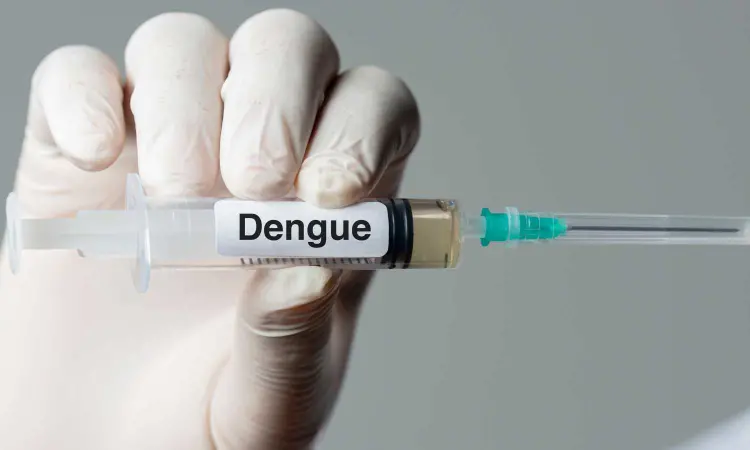- Home
- Medical news & Guidelines
- Anesthesiology
- Cardiology and CTVS
- Critical Care
- Dentistry
- Dermatology
- Diabetes and Endocrinology
- ENT
- Gastroenterology
- Medicine
- Nephrology
- Neurology
- Obstretics-Gynaecology
- Oncology
- Ophthalmology
- Orthopaedics
- Pediatrics-Neonatology
- Psychiatry
- Pulmonology
- Radiology
- Surgery
- Urology
- Laboratory Medicine
- Diet
- Nursing
- Paramedical
- Physiotherapy
- Health news
- Fact Check
- Bone Health Fact Check
- Brain Health Fact Check
- Cancer Related Fact Check
- Child Care Fact Check
- Dental and oral health fact check
- Diabetes and metabolic health fact check
- Diet and Nutrition Fact Check
- Eye and ENT Care Fact Check
- Fitness fact check
- Gut health fact check
- Heart health fact check
- Kidney health fact check
- Medical education fact check
- Men's health fact check
- Respiratory fact check
- Skin and hair care fact check
- Vaccine and Immunization fact check
- Women's health fact check
- AYUSH
- State News
- Andaman and Nicobar Islands
- Andhra Pradesh
- Arunachal Pradesh
- Assam
- Bihar
- Chandigarh
- Chattisgarh
- Dadra and Nagar Haveli
- Daman and Diu
- Delhi
- Goa
- Gujarat
- Haryana
- Himachal Pradesh
- Jammu & Kashmir
- Jharkhand
- Karnataka
- Kerala
- Ladakh
- Lakshadweep
- Madhya Pradesh
- Maharashtra
- Manipur
- Meghalaya
- Mizoram
- Nagaland
- Odisha
- Puducherry
- Punjab
- Rajasthan
- Sikkim
- Tamil Nadu
- Telangana
- Tripura
- Uttar Pradesh
- Uttrakhand
- West Bengal
- Medical Education
- Industry
ICMR, Panacea Biotec begin first ever Phase 3 clinical trial for dengue vaccine in India

New Delhi: The Indian Council of Medical Research (ICMR) and Panacea Biotec have announced the initiation of the first-ever Phase 3 clinical trial for a dengue vaccine in India. This landmark trial will evaluate the efficacy of India's indigenous tetravalent dengue vaccine, DengiAll, developed by Panacea Biotec. The first participant in this trial was vaccinated at Pandit Bhagwat Dayal Sharma Post Graduate Institute of Medical Sciences (PGIMS), Rohtak.
Commenting on this milestone, Union Minister of Health & Family Welfare, Shri J.P. Nadda, said, “The initiation of this Phase 3 clinical trial for India's first indigenous dengue vaccine marks a critical advancement in our fight against dengue. It reflects our commitment to protecting our citizens from this pervasive disease and underscores India's capabilities in vaccine research and development. Through this collaboration between ICMR and Panacea Biotec, we are not only taking a step towards ensuring the health and well-being of our people but also reinforcing our vision of Atmanirbhar Bharat in the healthcare sector.”
Currently, there is no antiviral treatment or licensed vaccine against dengue in India. The development of an effective vaccine is complex due to the need to achieve good efficacy for all four serotypes. In India, all four serotypes of Dengue virus are known to circulate or co-circulate in many regions.
The tetravalent dengue vaccine strain (TV003/TV005), originally developed by the National Institutes of Health (NIH), USA, has shown promising results in preclinical and clinical trials worldwide. Panacea Biotec, one of three Indian companies to receive the strain, is at the most advanced stage of development. The company has worked extensively on these strains to develop a full-fledged vaccine formulation and holds a process patent for this work. Phase 1 and 2 clinical trials of the Indian vaccine formulation were completed in 2018-19, yielding promising results.
In collaboration with ICMR, Panacea Biotec will conduct the Phase 3 clinical trial across 19 sites in 18 States and Union Territories of India, involving more than 10,335 healthy adult participants. The trial, primarily funded by ICMR with partial support from Panacea Biotec, is set to follow up with participants for two years. This initiative represents a significant step towards developing an indigenous vaccine for one of India’s most pressing public health challenges and exemplifies the nation’s commitment to Atmanirbhar Bharat.
Dengue is a major public health concern in India, ranking among the top 30 countries with the highest incidence of the disease. The global incidence of dengue has been steadily increasing over the past two decades, with more than 129 countries reporting dengue viral disease by the end of 2023, according to the World Health Organization (WHO). In India, approximately 75-80% of infections are asymptomatic, yet these individuals can still transmit the infection through the bite of Aedes mosquitoes. Among the 20-25% of cases where symptoms are clinically apparent, children are at a significantly higher risk of hospitalization and mortality. In adults, the disease can escalate into severe conditions like dengue hemorrhagic fever and dengue shock syndrome. The dengue virus has four serotypes, 1-4, with low cross-protection against each other, meaning individuals can experience repeated infections.
Read also: Panacea, SII conducting trials to develop dengue vaccine: DG ICMR
Ruchika Sharma joined Medical Dialogue as an Correspondent for the Business Section in 2019. She covers all the updates in the Pharmaceutical field, Policy, Insurance, Business Healthcare, Medical News, Health News, Pharma News, Healthcare and Investment. She has completed her B.Com from Delhi University and then pursued postgraduation in M.Com. She can be contacted at editorial@medicaldialogues.in Contact no. 011-43720751
Dr Kamal Kant Kohli-MBBS, DTCD- a chest specialist with more than 30 years of practice and a flair for writing clinical articles, Dr Kamal Kant Kohli joined Medical Dialogues as a Chief Editor of Medical News. Besides writing articles, as an editor, he proofreads and verifies all the medical content published on Medical Dialogues including those coming from journals, studies,medical conferences,guidelines etc. Email: drkohli@medicaldialogues.in. Contact no. 011-43720751


